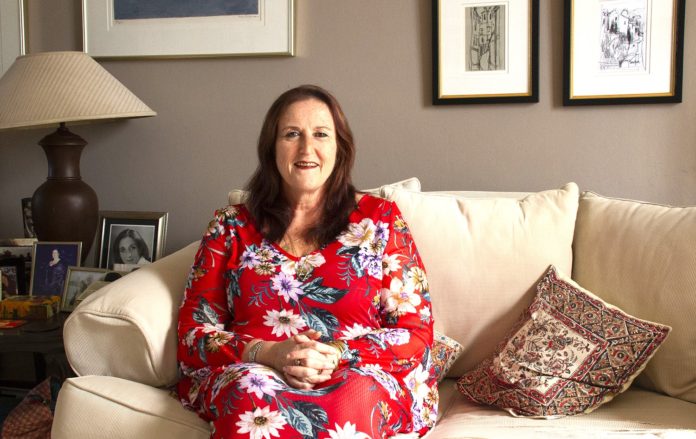Susan Abro of Susan Abro Attorney joins the global community in observing 16 Days of Activism Against Gender-Based Violence, running from 25 November to 10 December 2023.
“During this crucial period, it is essential for us to unite in highlighting the urgency of addressing the pervasive issue of gender-based violence in South Africa,” says Abro.
A seasoned Family lawyer and former Chairperson of the Family Law Committee of the Law Society of South Africa for twenty years, Susan is a relentless advocate for women and children’s rights. Her commitment is evident in her extensive work as an expert in family law, handling cases involving international jurisdictions, and presenting papers at local and international conferences on topics such as domestic violence, family law, matrimonial law, and women and children’s rights and empowerment.
“The grim reality of gender-based violence in South Africa is starkly highlighted by recent crime statistics from the South African Police Services (SAPS). Shockingly, within just three months, 28 children face physical violence daily and three do not survive,” states Abro.
Furthermore, 969 women fell victim to murder, over one million women were raped, and over fifteen thousand women endured assault during the same period. “These alarming statistics, although staggering, represent only reported cases. Sadly, countless more incidents go unreported.”
President Cyril Ramaphosa has acknowledged the severity of gender-based violence, prompting numerous stakeholder meetings. Despite these efforts, the statistics continue to rise annually. The majority of gender-based violence, including murders, occurs within domestic partnerships, emphasising the urgent need for protection orders against abusive partners.
Recent amendments to the Domestic Violence Act No.116 of 1998 have broadened the definition of domestic violence to include physical abuse, sexual abuse, emotional and psychological abuse, economic abuse, intimidation, harassment, stalking, unauthorised entry, and any other controlling or abusive behaviour.
“The most interesting addition to the definition is ‘of any other controlling or abusive behaviour’. This is indeed a great step forward in assisting what most of us understand gender-based violence to consist of, which is controlling behaviour.”
Another crucial element outlined in the Domestic Violence Act pertains to the seizing of firearms and dangerous weapons. Abro emphasises the significance of this provision, particularly when the victim is aware that the respondent (abuser) is in possession of guns or dangerous weapons. In such cases, an interim protection order provides for these to be removed from the respondent’s possession by the SAPS.
Another important issue to consider under the same section is the state of mind or mental condition of the abuser, their inclination to violence, psychiatric conditions, or substance abuse.
The Domestic Violence Act is designed to aid unrepresented applicants. “This means that survivors of gender-based violence are able to approach the courts personally to obtain assistance and relief.”
It is essential for women to obtain protection orders against abusive partners. “I do understand that survivors of gender-based violence are often forced to remain with their abusers as a consequence of economic issues. An interim protection order can provide emergency monetary relief, which can continue for a period, to enable survivors to make application for maintenance. There are numerous NGOs and shelters who also provide assistance,” adds Abro.
If the abuser breaches an interim protection order or a final protection order, Abro strongly urges applicants to have the respondent arrested. “In my practice I deal with a number of gender-based violence issues, either individually to obtain a protection order or as part of the divorce process.”
Applications for protection orders must be as a consequence of some form of domestic violence as defined by the Act and should never be requested in order to be used as a tool to place pressure on the respondent to provide a larger proprietary settlement in a divorce.
“An issue that is often raised by my clients who have obtained a protection order, is that they find it difficult to have the SAPS arrest the abuser when the protection order is breached, and if the abuser is arrested he is often released on bail shortly thereafter.”
If an applicant experiences any resistance from the SAPS in serving an interim protection order or a final protection order and arresting the respondent, Abro urges victims to insist upon speaking with the station commander. “Abusers who are arrested under protection orders may not be released on bail by the SAPS. They are required to be taken before a magistrate,” explains Abro.
If an abuser is released on bail, immediately address a letter to the station commander of the police station concerned and it will be investigated. “Complaints against one particular police station will be investigated by a completely different police station in order to ensure objectivity.”
If you receive no satisfaction from these steps then Abro recommends that you address a letter to the KZN Director General of Justice.
“The only way for the scourge of gender-based violence to be addressed is for the survivors to bravely take action against their abusers and for all women to stand together in support of survivors of gender-based violence,” concludes Abro.
www.susanabro.com












